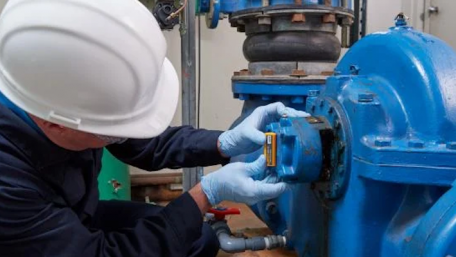
Vibration sensors measure the mechanical vibration of an object, making it possible to monitor machines for early signs of failure to prevent costly and…
Vibration sensors measure the mechanical vibration of an object, making it possible to monitor machines for early signs of failure to prevent costly and dangerous breakdowns.
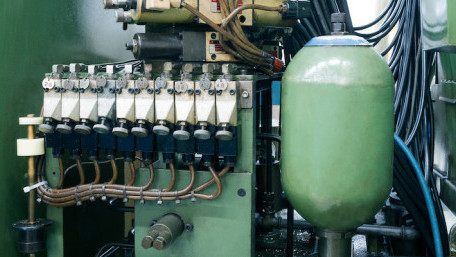
Hydraulic systems suffer from pressure drops and energy loss whenever any fluid is in motion. Learn about these devices…
Hydraulic systems suffer from pressure drops and energy loss whenever any fluid is in motion. Learn about these devices called ‘accumulators’. What are they, how do they work, and why do we need them?
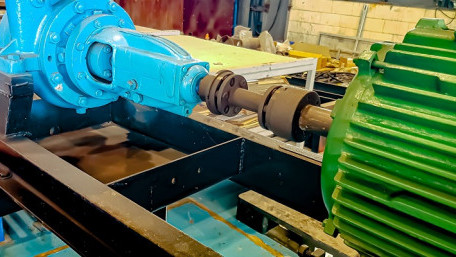
Understanding torque is a key method of preventing damage to machines and ensuring a long lifespan. We have all heard of…
Understanding torque is a key method of preventing damage to machines and ensuring a long lifespan. We have all heard of torque, but what is it, and how is it measured in automated systems?
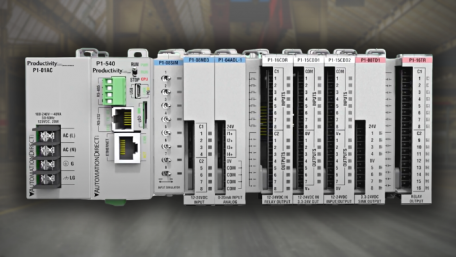
AutomationDirect’s Productivity line of PLCs is known for cost-effectiveness and ease of use. Learn how to build and…
AutomationDirect’s Productivity line of PLCs is known for cost-effectiveness and ease of use. Learn how to build and download a simple program using discrete input and output ladder commands.
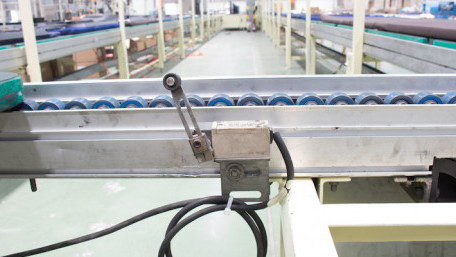
Limit switches are electromechanical devices that open or close contacts when external pressure is applied to an…
Limit switches are electromechanical devices that open or close contacts when external pressure is applied to an actuator. This solves a simple problem faced by motion devices: limiting movement
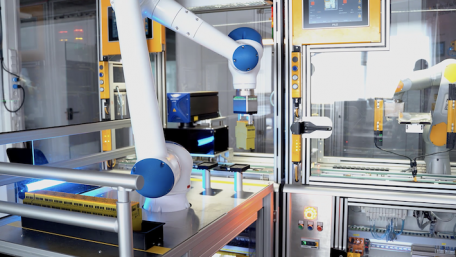
Engineering processes like robotics, feedback control, and security systems rely on position and distance sensors to…
Engineering processes like robotics, feedback control, and security systems rely on position and distance sensors to provide real-time information that enables machines to operate accurately and safely.
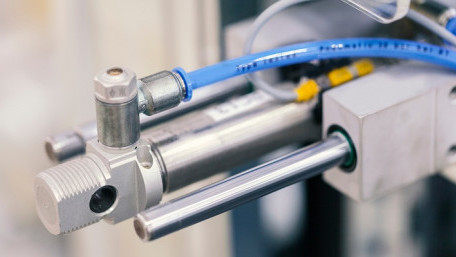
Fluid flow control is often crucial to control systems and can be achieved by incorporating control valves. In this…
Fluid flow control is often crucial to control systems and can be achieved by incorporating control valves. In this article, we will look at the sequence valve and its use in systems to automate fluid flow.
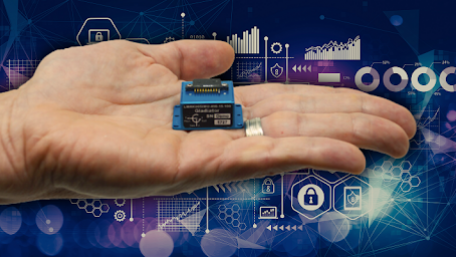
MEMS sensors enable the creation of highly sensitive, compact, and low-power devices for measuring quantities like…
MEMS sensors enable the creation of highly sensitive, compact, and low-power devices for measuring quantities like acceleration, magnetic fields, pressure, and more, and are found in automotive safety systems, navigation, and environmental monitoring.
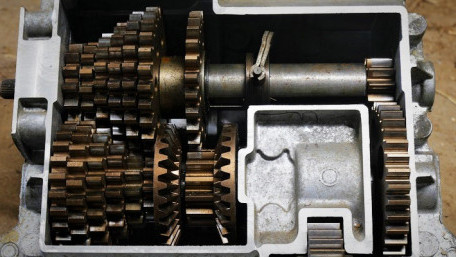
Although electrical systems often receive the highest praise for advancement, precision, and technological innovation,…
Although electrical systems often receive the highest praise for advancement, precision, and technological innovation, the world would be stuck without mechanical power delivery systems like gear drives.
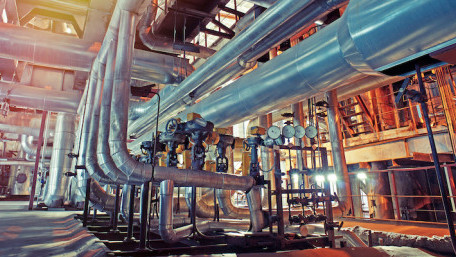
Flow sensors measure the flow rate of liquids or gasses in pipes, ducts, and other fluid systems to help monitor and…
Flow sensors measure the flow rate of liquids or gasses in pipes, ducts, and other fluid systems to help monitor and control processes, prevent system failures, and optimize performance.
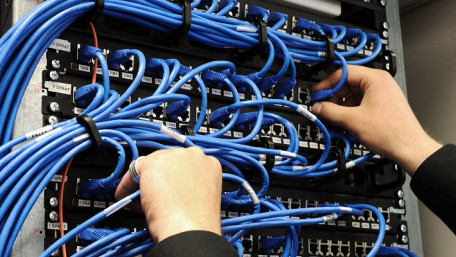
Failures are never the goal of any industrial operation. But when disaster strikes, it’s always better to have a…
Failures are never the goal of any industrial operation. But when disaster strikes, it’s always better to have a mitigation plan in place well in advance of the event to ensure timely recovery.
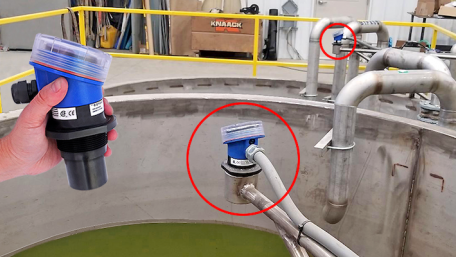
Level sensors are used to measure the level of a substance, usually a liquid or granular material, in a container.…
Level sensors are used to measure the level of a substance, usually a liquid or granular material, in a container. Different types of level sensors include capacitive, ultrasonic, acoustic, and radar.
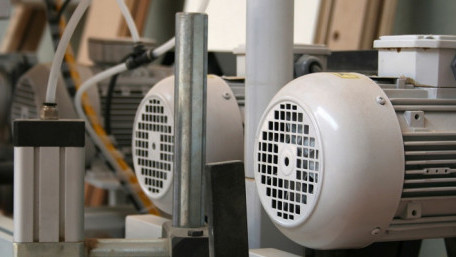
In today's modern, digitally connected world, reliable and continuous power availability, together with power quality,…
In today's modern, digitally connected world, reliable and continuous power availability, together with power quality, help optimize power consumption hence improving distribution system efficiency.
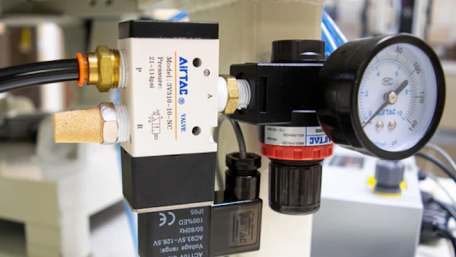
Pressure sensors are essential tools in industrial applications, required wherever there is a hydraulic or pneumatic…
Pressure sensors are essential tools in industrial applications, required wherever there is a hydraulic or pneumatic system to keep pressure quantities under control.
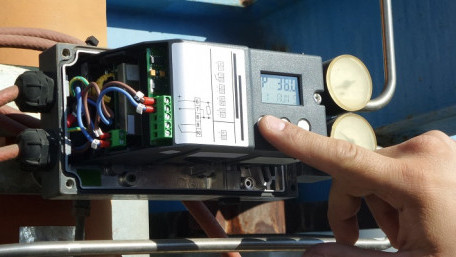
Calibration is performed on a regular basis to ensure proper measurement tool function, but how do we determine the…
Calibration is performed on a regular basis to ensure proper measurement tool function, but how do we determine the proper interval? Factors include environment, usage, and level of dependence on proper function.
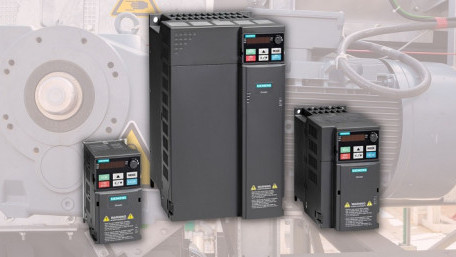
Many VFDs use digital inputs to control operation, rather than PLC-driven network communications. Learn about 2-wire and…
Many VFDs use digital inputs to control operation, rather than PLC-driven network communications. Learn about 2-wire and 3-wire digital input control schemes for ABB, Omron, Rockwell, and others.
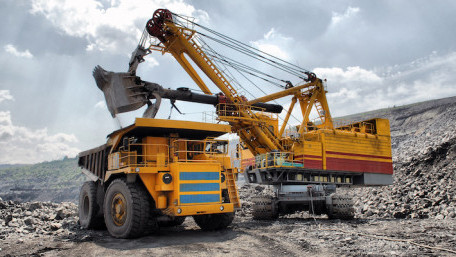
There are many different kinds of electric motors used for industrial power transfer, but there are also hydraulic and…
There are many different kinds of electric motors used for industrial power transfer, but there are also hydraulic and pneumatic motors that can lend advantages in some situations.
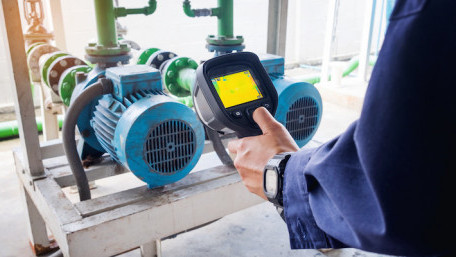
Converting thermal energy into electrical signals, temperature sensors such as RTDs and thermocouples are fundamental in…
Converting thermal energy into electrical signals, temperature sensors such as RTDs and thermocouples are fundamental in the maintenance and operation of industrial environments and equipment.
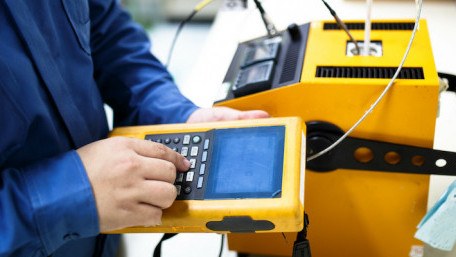
Calibration can be a time-consuming process requiring expensive traceable tools, but high-accuracy signals result in…
Calibration can be a time-consuming process requiring expensive traceable tools, but high-accuracy signals result in higher-quality products, better customer satisfaction, and, ultimately, greater returns.
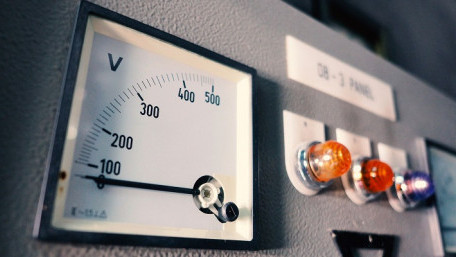
Analytics from data algorithms can predict machine failures and provide diagnostics—but what should we measure? Then,…
Analytics from data algorithms can predict machine failures and provide diagnostics—but what should we measure? Then, once the information has been collected, what trends might point to problems?
